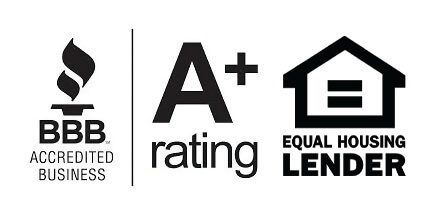Can the Housing Market Get Any Hotter? A Guide to Home Buying This Spring
The words “spring home buying season” carry a very different meaning this year than they did last year.
Normally spring is the hottest time of year for home sales — more buyers surface when the warmer weather emerges and families prefer to move before the next school year begins. Last year’s spring market, though, was an anomaly. The coronavirus crisis ground the housing market to a halt in mid-March, as states locked down and house hunters put their home search on ice while following stay-at-home orders.
This spring? It’s a mad dash for homes. Thanks to the distribution of the COVID-19 vaccine, buyers are no longer confined to their homes — meaning they’re pounding the pavement and touring homes in person.
Homes are selling at breakneck speed. In March, properties typically remained on the market for just 18 days, down from 29 days in March 2020, according to the National Association of Realtors. Bidding wars are also up — nearly two-thirds of offers written by Redfin agents in March faced competition, up from 45% in April 2020, according to the brokerage.
Blame the country’s dire shortage of homes for sale. Unsold inventory sat at a paltry 2.1-month supply in March, NAR reports. Generally, a balanced market has four to six months of home supply.
“The market is hot pretty much everywhere and across all price points,” says Lawrence Yun, NAR’s chief economist. “The only area where there is sufficient inventory is in $1 million-plus homes, but that only represents about 5% of the housing market.”
In a nutshell, it’s a red-hot seller’s market these days. So, if you’re planning to buy a home this spring, here are five things you’ll have to do to nab a house successfully.
Expect high home prices
America’s dearth of housing supply is pushing home prices to new heights. In March, the median home listing price reached a record-high of $370,000, up 15.6% from a year ago, according to Realtor.com’s monthly Housing Market Trends Report. Austin (+39.8%), Buffalo (+28.3%), and Los Angeles (+24.8%) posted the highest year-over-year median list price gains.
The result: “Buyers are experiencing sticker shock,” Yun says.
Matt Curtis, a real estate broker and owner of the Matt Curtis Real Estate team in Huntsville, Ala., can attest to that. “Home valuations here just keep climbing,” he says. “It’s Econ 101: there’s simply not enough supply to keep up with demand, and it’s going to take time to dig ourselves out of this housing shortage.”
Be ready to pounce
In this fast-moving market, buyers need to have all their ducks in a row before they start shopping for homes, says Hal Hovey, a real estate agent with Coldwell Banker 360 Team in Oak Harbor, Wash.
“Houses are going under contract within one to two days, so buyers have to move quickly,” he says. “They don’t have the luxury of waiting around and contemplating making an offer.”
Therefore, get preapproved for a mortgage ASAP. Having that pre-approval will mean that you’re prepared to write an offer when you find a house that you like. (To make sure offers are serious and viable, sellers are also requiring buyers present pre-approval letters with their bids.)
Another reason to get preapproved pronto? Mortgage rates are ticking up. “The combination of two stimulus packages, the improving economy, quickening vaccination rates and inflationary expectations has led to a pickup in mortgage rates from January’s record-lows,” says Mike Fratantoni, chief economist at Mortgage Bankers Association.
Although mortgage rates have slid in recent weeks, Fratantoni believes the declines are temporary. He expects rates to gradually increase in the coming months— rising to around 3.5% by the end of the year.
Find a reliable mortgage lender
Make sure to choose a lender and loan officer who is readily accessible. “You need to have a lender who’s available on nights and weekends, because you may need a pre-approval letter written with a property’s address at a moment’s notice,” Hovey says.
If you’re planning to purchase a home in cash, “have your proof of funds, such as a statement of your bank account or a letter from your financial advisor, ready to submit with your offer,” recommends Gary DiMauro, a real estate broker in New York’s Hudson Valley.
Be realistic about how much house you can afford
In this lean market, aligning your home criteria with what homes are actually on the market in your price range is a must. “You need to sit down with your real estate agent and compare your wish list to what’s out there for sale,” Curtis says.
Hovey says a little flexibility can go a long way. “Be prepared to compromise,” he advises. “You may not find the perfect house. So, know what home features you are and are not willing to give up.”
Still, buyers who are open to purchasing a fixer-upper may be able to find a deal, according to Hovey. “If you’re willing to take a house that’s rough around the edges and needs a lot of work, there are still some deals to be had, because most buyers are looking for move-in ready homes,” he says.
Be patient — and flexible
“Don’t get discouraged,” Hovey says. “It’s not unusual for buyers today to write four or six or even eight offers before they have an offer accepted.” Indeed, in a recent Zillow survey, agents reported submitting an average of 3.9 offers per client before one was accepted.
Also, you may need to modify your budget during your home search, since many houses are selling above listing price. “If a house is fresh on the market and you want to get it, you need to be aggressive, and that often means offering above asking price,” says Micki MacNaughton, a real estate agent at McEnearney Associates in Alexandria, Va.
Can’t make an offer that’s above a home’s list price? One tactic that could give your bid an edge is to offer the seller a leaseback agreement, an arrangement where the seller rents the property from you for a short duration after closing. With homes selling at warp speed these days, sellers who haven’t purchased their next home would relish having a little more time to stay in their home while they search for their new house.
BY DANIEL BORTZ






